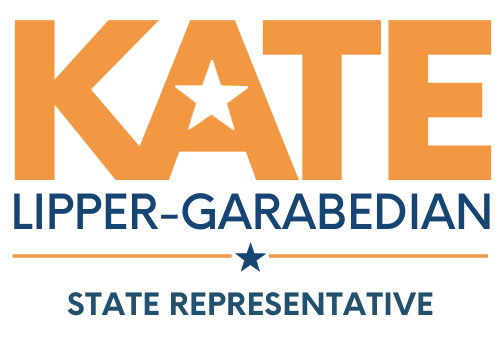State Representative Lipper-Garabedian Joins House to Pass Bill to Enhance Child Welfare Protections
Bill strengthens oversight, transparency, and accountability within the Commonwealth’s child welfare system
BOSTON – Wednesday, October 22, 2025 – Today, State Representative Lipper-Garabedian joined the Massachusetts House of Representatives to pass comprehensive legislation to strengthen oversight, transparency, and accountability within the Commonwealth’s child welfare system. An Act Enhancing Child Welfare Protections modernizes the Department of Children and Families’ (DCF) statutory reporting, clarifies the independence of the Office of the Child Advocate (OCA), improves educational stability for children in care, and updates the state’s child fatality review process.
“This legislation strengthens the state systems that serve our must vulnerable children,” said State Representative Kate Lipper-Garabedian (D-Melrose). “The law will advance greater attention on and care for the individuals in the child welfare system with enhanced reporting, cross-agency collaboration, and attention on outcomes. As a former teacher, I recognize the vital nature of improved coordination between school districts and clear enrollment timelines and record transfer standards are for students in DCF custody who change schools. These measures provide essential support for students to experience stability and succeed academically.”
“Every child in Massachusetts deserves safety, stability, and opportunity,” said House Speaker Ronald J. Mariano (D-Quincy). “This bill strengthens oversight, improves coordination between agencies, and ensures that children in state care receive the support that they need to thrive. I’d like to thank Chairman Livingstone for his work on this bill, and all my colleagues in the House for supporting it.”
This legislation expands statutory reporting by DCF to include disability and disaggregated demographic data, breakdowns of 51A reports by reporter role, ADA accommodation and complaint metrics, and refined placement and permanency measures. It also adds reporting requirements on outcomes for youth aging out of DCF’s care, behavioral health boarding, and education metrics, such as individualized education program counts, attendance, and graduation rates.
The bill passed today allows for the creation of a DCF Education Unit, tasked with academic monitoring, support, and strengthening coordination with school districts. It also requires DCF and the Department of Elementary and Secondary Education (DESE) to establish clear enrollment timelines and record transfer standards for children in DCF custody who change schools.
The bill passed today also clarifies the role of the Office of the Child Advocate (OCA) as an independent state agency. It further expends the OCA’s authority to examine disproportionality, partner with agencies while safeguarding oversight, maintain a public mandated reporter website, and conduct systemwide reviews of DCF.
Additionally, the bill strengthens the Child Fatality Review System by establishing joint leadership between the OCA and the Department of Public Health (DPH). It further updates the membership to include the Department of Early Education & Care (EEC) and codifies the structure of local review teams.
Lastly, the bill improves timely notifications to children’s counsel following placement changes, hospitalizations, 51A reports or school disciplinary events. It also requires reporting on children who remain in psychiatric care beyond medical necessity, including length of stay and licensure/training requirements for DCF social workers.
The bill passed the House of Representatives 159-1. It now goes to the Senate for consideration.
###
